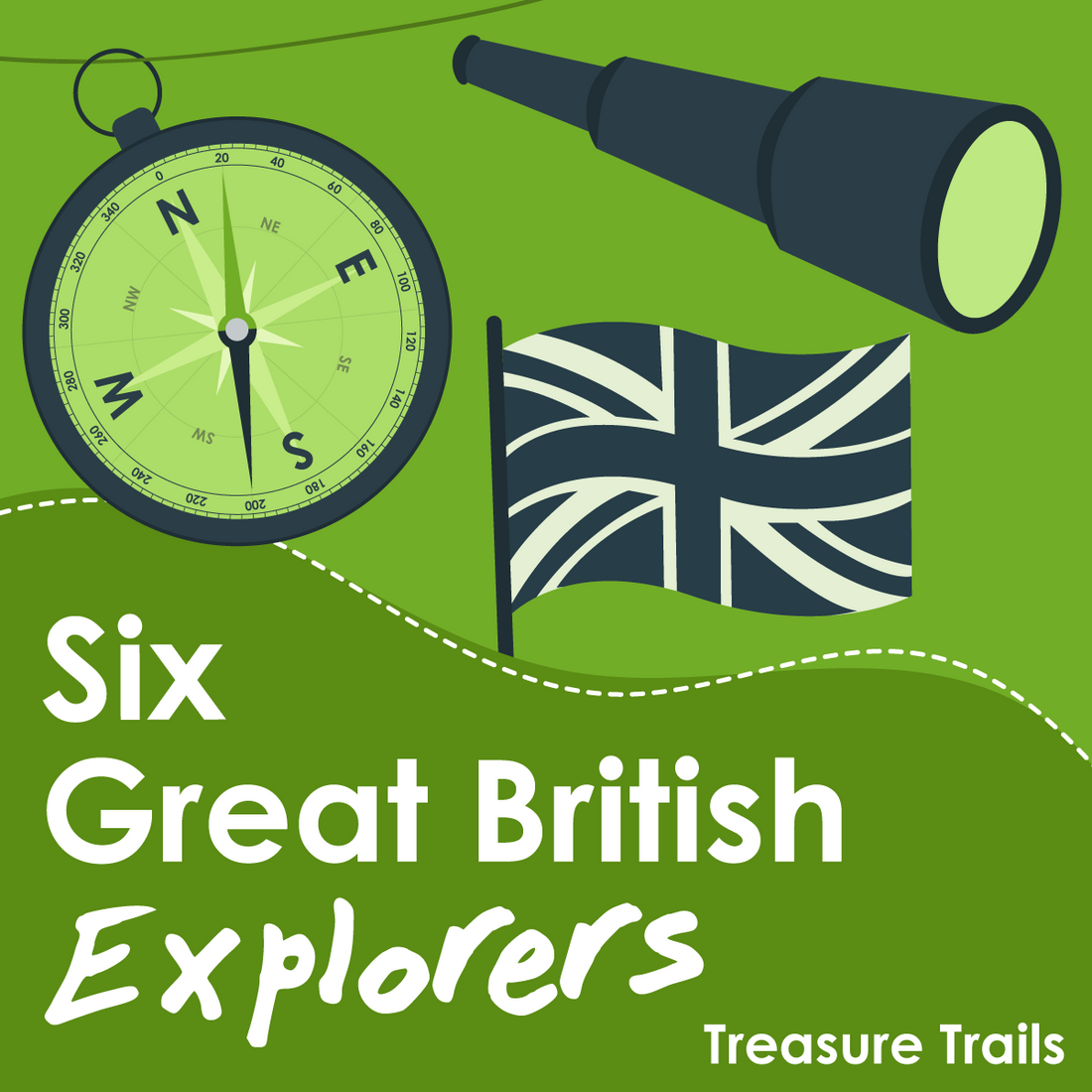
Six Great British Explorers
Share
We love exploring and turning an ordinary day out into a full-blown adventure. But, these six Great British Explorers went the extra mile, venturing from the UK's shores to discover hidden gems and twisting tales from across the world.
While these may not be the greatest explorers - and some have a few controversies that have followed them through the centuries - each was or is great in their own way!
Sir Francis Drake
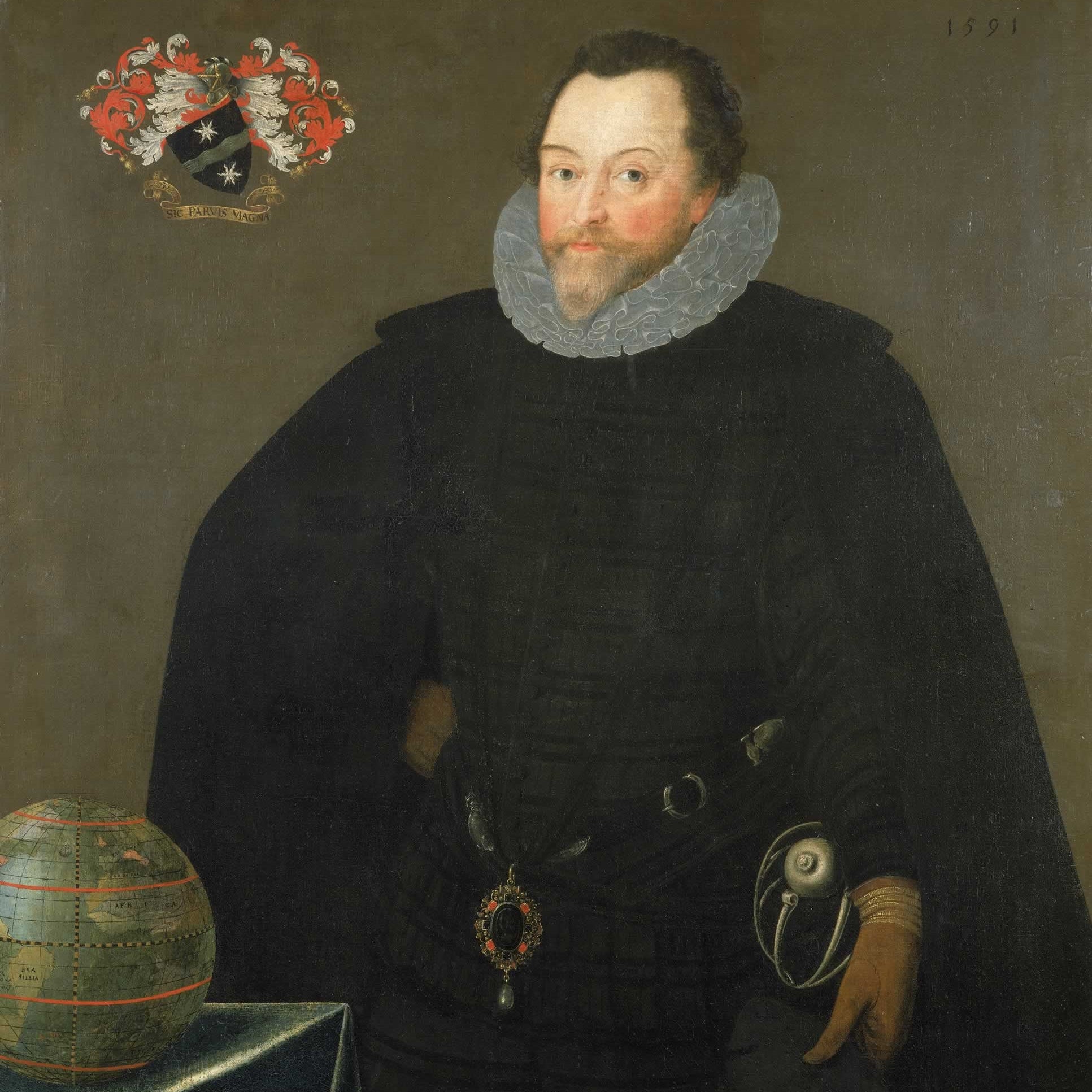
Starting with the 16th century, we have Sir Francis Drake – he was born in Tavistock in Devon and had strong links to Plymouth. With the sea in his blood, he's probably best known for his piracy and illicit slave trading.
The Spanish thought of him as a pirate, but we Brits hailed him as a hero, particularly as he was knighted by Queen Elizabeth I after he explored the coast of South America. He was involved in the Spanish Armada but died from dysentery and fever. He was apparently buried in a lead coffin at sea near Portobello, Panama, and even today, divers continue to search for his coffin.
A statue to Sir Francis Drake has stood in Tavistock since 1883, with a duplicate erected on Plymouth Hoe a year later. In 2020, the public called for both to be removed, but instead, there are plans for information boards explaining Drake's whole history - the good, bad and ugly - to be installed near the statues.
William Dampier
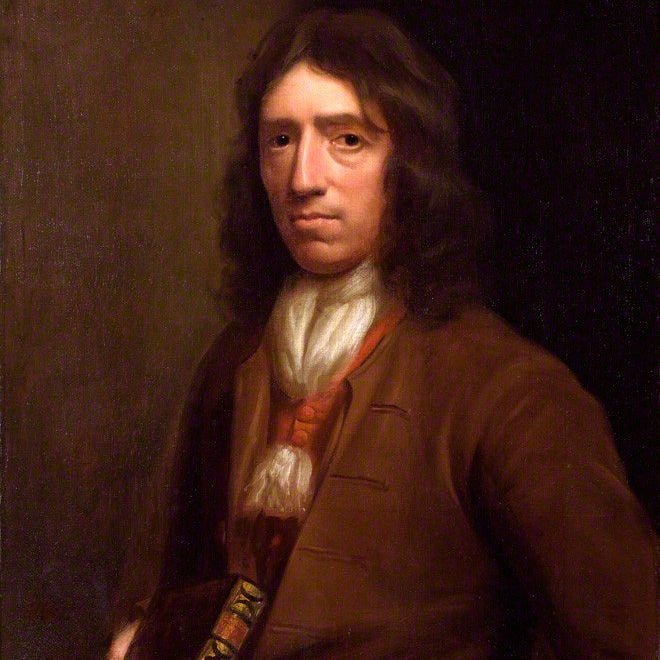
Like Drake, William Dampier, from East Coker, Somerset, was a sailor. It would appear that he wasn’t the best leader, as he struggled to manage the crews placed under him. In 1702, a court martial declared him unfit to command any of His Majesty's ships!
His real claim to fame was as an author. He was a very popular writer, and his works set an entire fashion in travel literature, influencing men like Swift and Defoe. His account of the winds and currents of the Pacific in a 1699 volume has earned the respect of navigators and meteorologists to the present day.
His writings are the first example of words like chopsticks and barbecue used in English, landing him over 80 citations in the Oxford English Dictionary. He also recorded the first-ever English-language recipes for guacamole and mango chutney.
Captain James Cook

Everyone will have heard of our 18th-century explorer, Captain James Cook, who was born in Middlesbrough on the border of North Yorkshire and County Durham, beside the banks of the River Tees. He began his naval career at 17 with a merchant navy apprenticeship, where he learnt skills that would help him in his future expeditions.
In 1769, the planet Venus was due to pass in front of the Sun, a rare event visible only in the southern hemisphere. The British government decided to send an expedition to observe it with the secret motive of searching for the fabled southern continent. Cook was chosen as commander of HMS Endeavour and undertook a nine-month voyage to Tahiti. After observing the transit of Venus, Cook and his crew set off into uncharted territory, stopping at Huahine, Bora Bora, Raiatea, New Zealand and, finally, Australia, becoming the first European ship to land on the east coast in a place Cook named Botany Bay.
Like Drake, he's seen in two lights by the modern world. He played a major part in taking Australian land away from the Aboriginal people and was known to be violent towards them and other indigenous people he met on his voyages. But, his achievements in mapping the Pacific, New Zealand and Australia radically changed Western perceptions of world geography.
Dr David Livingstone
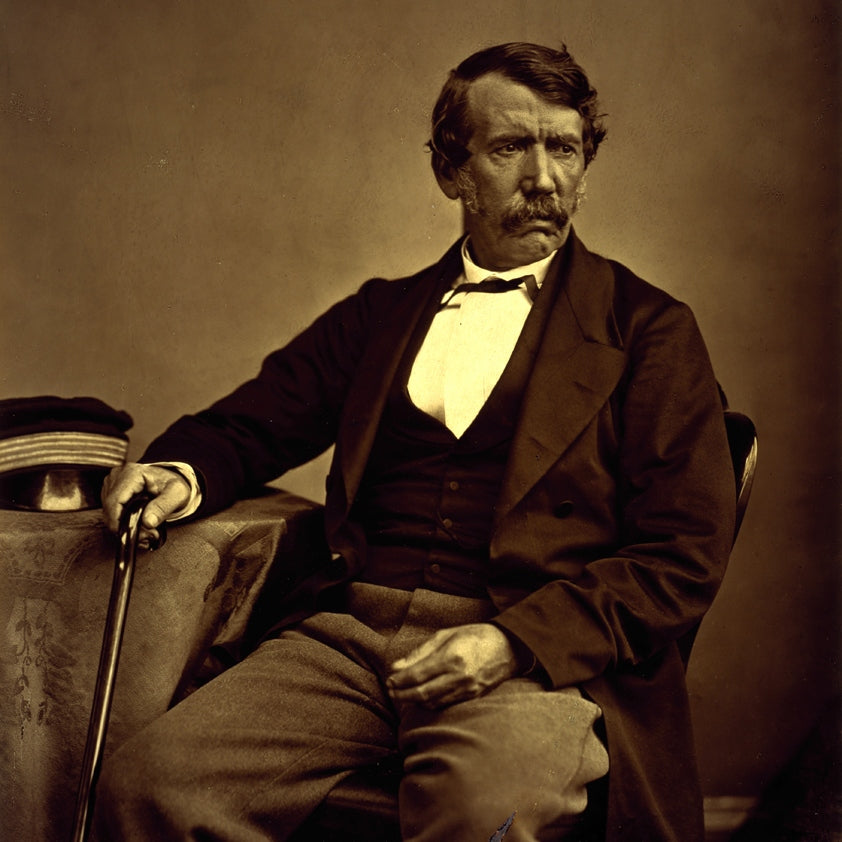
Born in Blantyre, just south of Glasgow, in the 19th century, Dr David Livingstone studied medicine and theology and became a missionary.
He was posted to the Kalahari and became convinced his mission was to bring Christianity to the people in the interior of Africa. He 'discovered' Victoria Falls and was the first European to cross the width of Southern Africa.
Livingstone spent years trying to find the source of the Nile despite very poor health. After nothing was heard of him for many months, Henry Stanley, an explorer and journalist born in Denbigh, set out to find him. After meeting him at Lake Tanganyika, he uttered his immortal line, "Dr Livingstone, I presume".
Captain Robert Falcon Scott
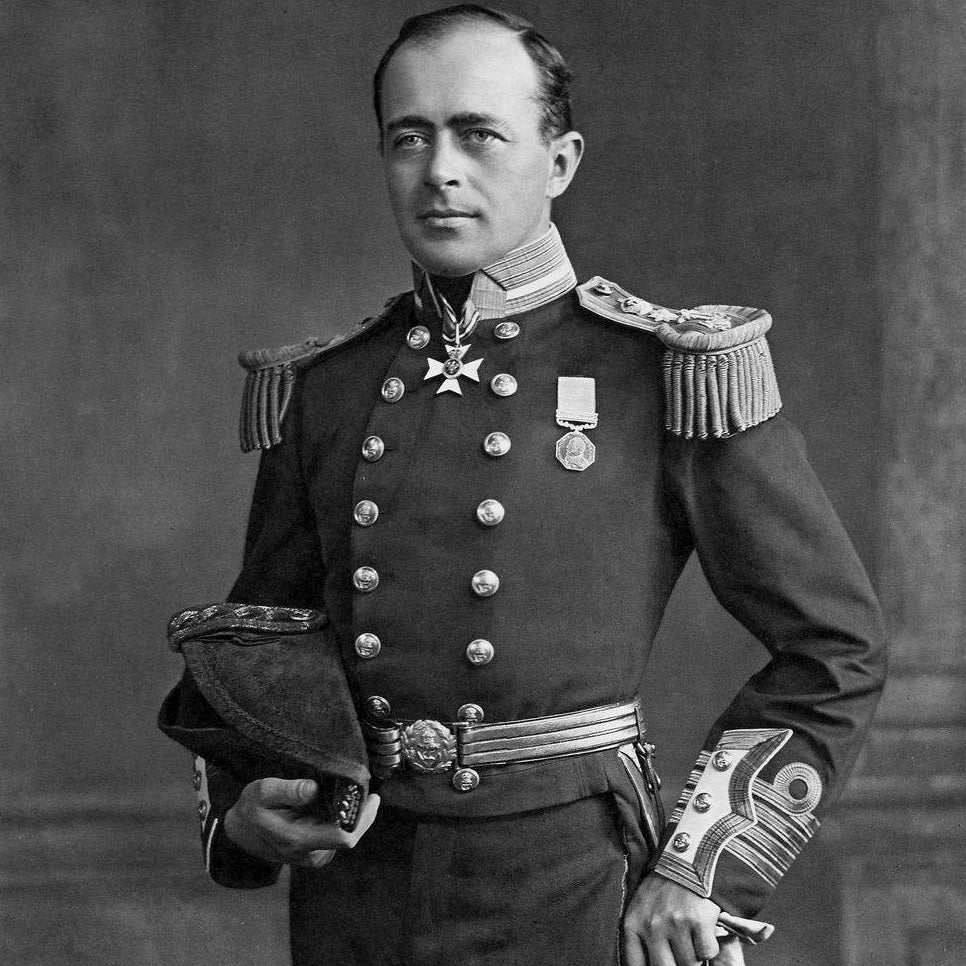
If the name Robert Falcon Scott doesn't ring any bells, it may be because this Plymouth-born naval officer and explorer is better known by his nickname - Scott of the Antarctic. By the 20th century, most of the land on Earth had been discovered, mapped and explored widely, but Antarctica and the Arctic were still largely unknown.
Scott first set off on the Discovery expedition (1901-04), where they discovered the Polar Plateau. He's better known for his ill-fated second expedition on the Terra Nova (1910-13), where he'd hoped to be the first to reach the South Pole.
In September 1911, 16 men - including Scott - set out on a march towards the pole in parties of four, with the plan that three groups would turn around at certain points, with one party making the final stretch. In the end, five men set off on the final leg to the pole on 3rd January 1912, passing Ernest Shackleton's furthest south point on 9th. However, when they got within 15 miles of the pole, they could see a flag flying in the distance - Norwegian explorer Roald Amundsen had beaten them to the pole a month before.
This wasn't the only tragedy. On the journey back, frostbite was setting in, which was causing them to slow down in extreme conditions with few supplies. Edgar Evans was the first to pass away on 17th February. A month later, Lawrence Oates - with severe frostbite on his feet and hands, left the tent saying, "I am just going outside and may be some time" and never returned. The remaining three kept attempting to advance, but they weren't able to get closer than 11 miles to the depot. Scott's last diary entry was on 29th March 1912.
Sir Ranulph Fiennes
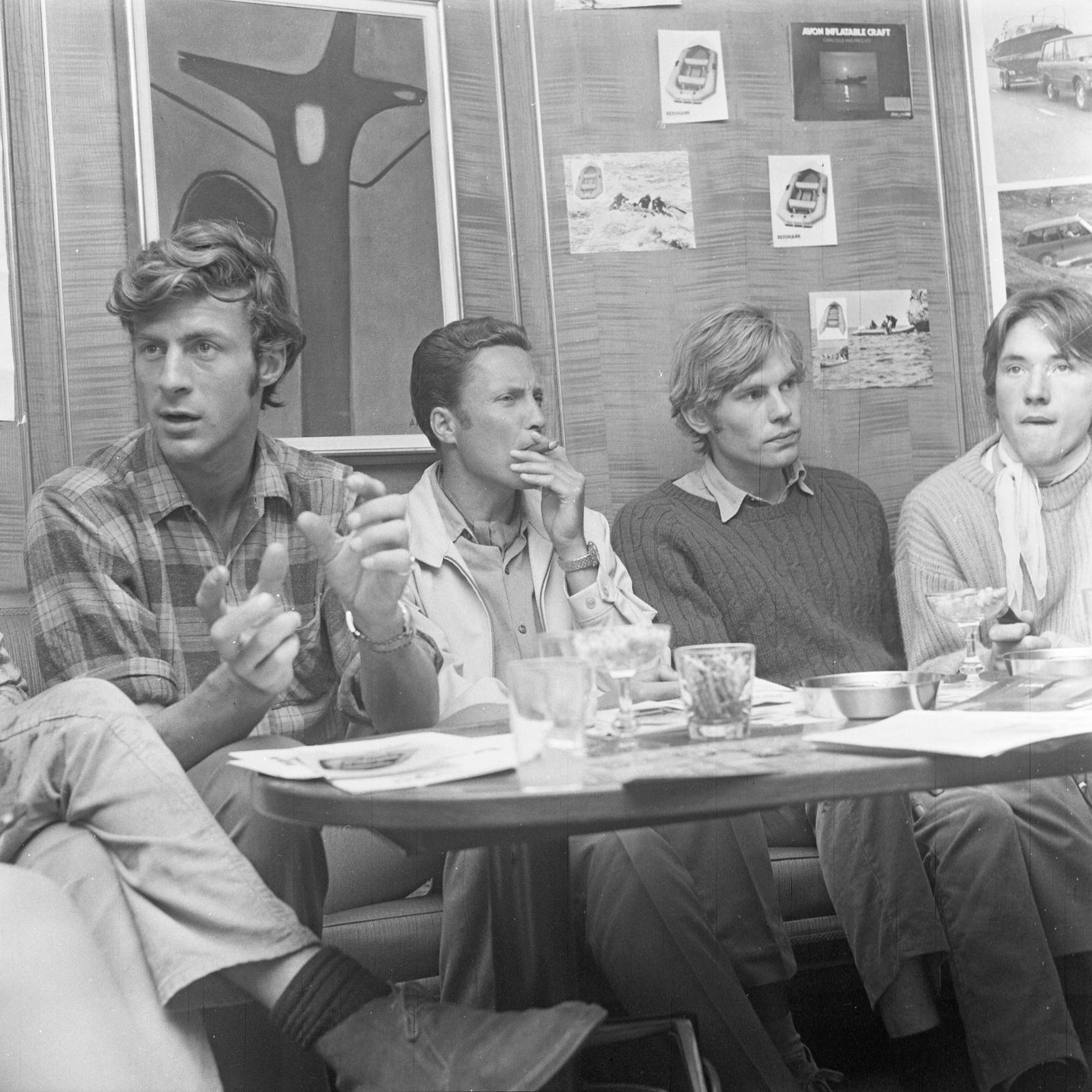
Image: By Municipal Archives of Trondheim from Trondheim, Norway - British Jostedals Glacier Expedition (1970), CC BY 2.0, https://commons.wikimedia.org/w/index.php?curid=34033772
Time for something a little cheerier! Described by The Guinness Book of Records as “the world’s greatest living explorer” in 1984, Sir Ranulph Twisleton-Wykeham-Fiennes, 3rd Baronet, OBE (pictured to the far left), was born in Windsor in 1944.
In his life, he's been on a number of fantastic expeditions, including travelling up the White Nile in 1969, exploring the Jostedal Glacier in 1970 and, notably, the Transglobe Expedition between 1979-82. The latter, devised by his wife Ginny (who was the first woman awarded the Polar Medal), had Fiennes circumnavigating the globe north to south, including trekking through both poles, using only surface transport. This had never been attempted before and hasn't been since.
He was also the first person to cross Antarctica on foot and the oldest Briton to climb Everest in 2009, aged 65, where he also became the first person ever to have crossed both polar ice caps AND climbed Everest.
If that's not enough, his other claims to fame are as an author with over 24 published fiction and non-fiction books and as the UK’s top celebrity fundraiser who's raised over £14m for UK charities.
Star in your own adventure
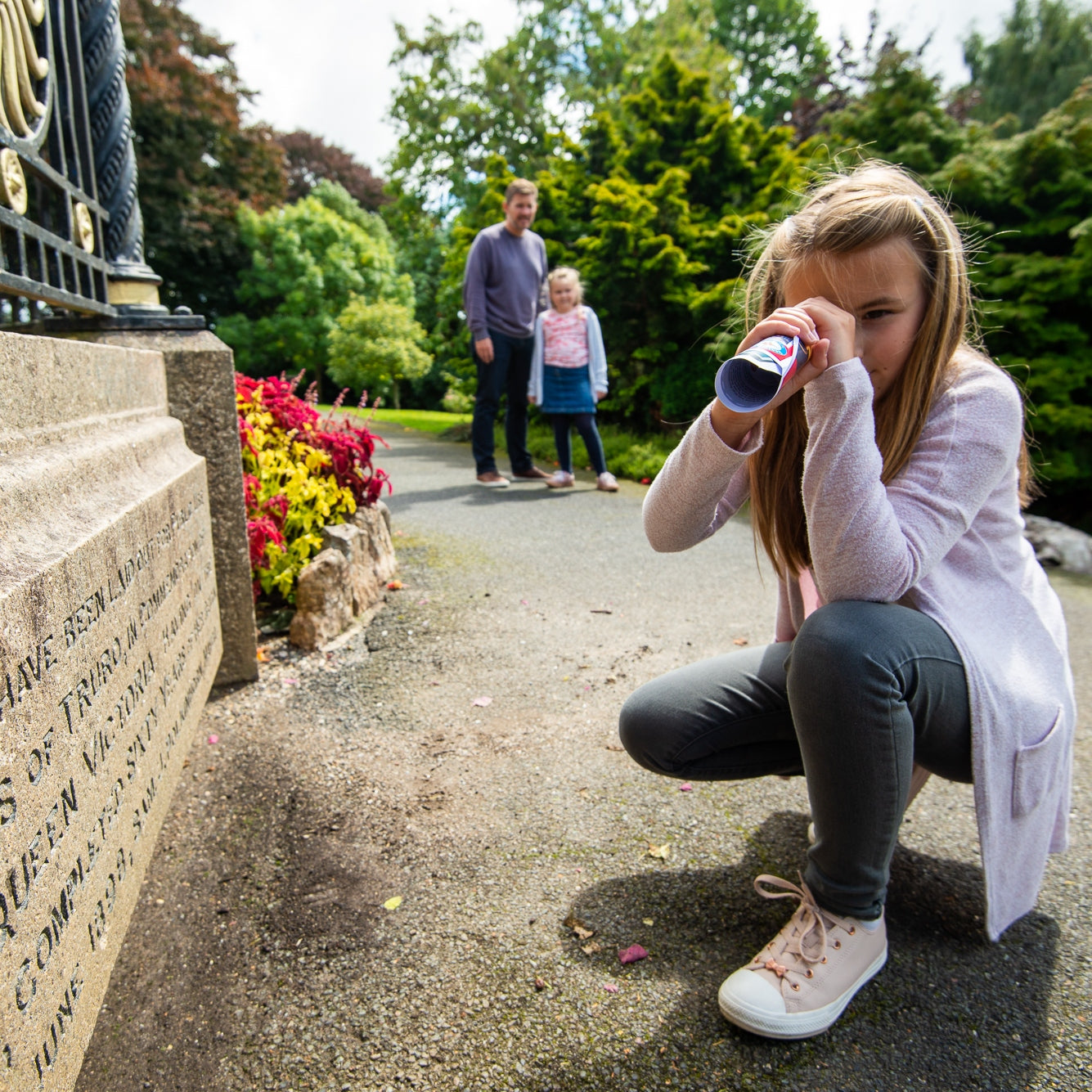
While you might not be able to follow the footsteps of these great adventurers on a global expedition, there are over 1,200 Treasure Trails across the UK just waiting to be explored with.
Set off on a voyage of discovery with a treasure hunt, detective mystery or spy mission self-guided quest, where you'll find hidden gems, learn fascinating facts and have heaps of fun unleashing your inner explorer.